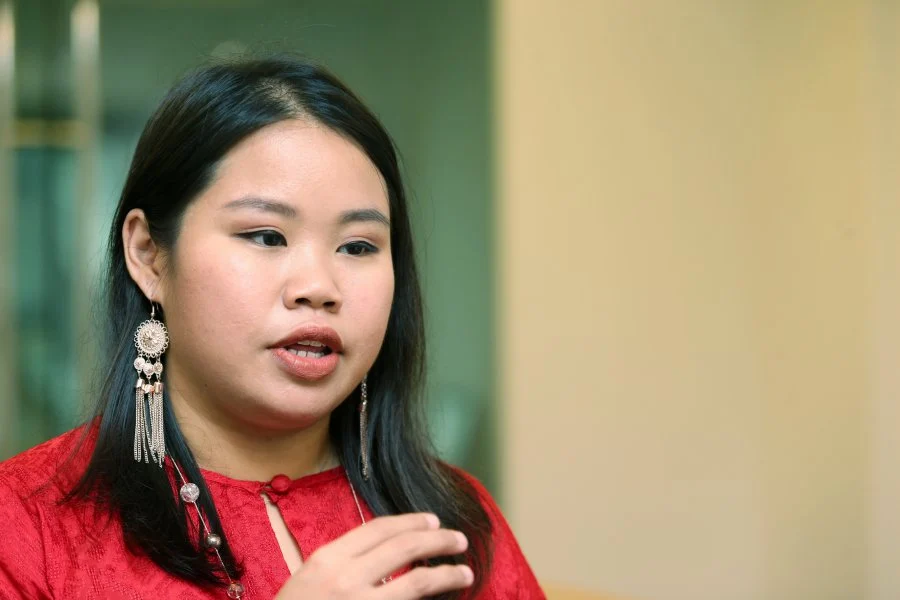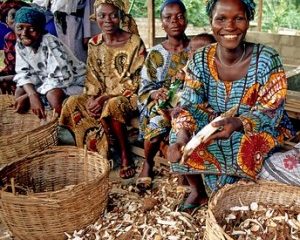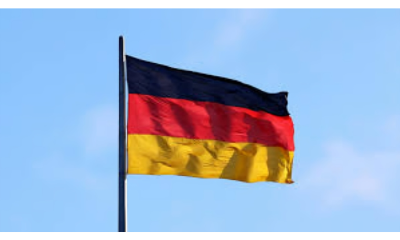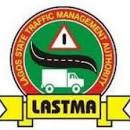Foreign News
Malaysian Activist Charged after Claiming Officials Abused Migrants

Malaysian activist Heidy Quah was charged in court on Tuesday over her allegations that police and officials mistreated migrants.
Quah, 27, pleaded not guilty to “improper use of network facilities’’ over a Facebook post last year.
In the post Quah shared the experience of a woman who said she was put in a migrant detention centre shortly after given birth.
Quah, founder of the organisation Refuge for the Refugees, said when she visited the centre she found the woman “cuffed to the table while talking to me through a plastic wall with holes in it’’.
Officials should “investigate allegations, not whistleblowers,’’ Quah said.
“As daily positive cases of Coronavirus hit an all-time high, it is unfortunate and frustrating that the government’s energy and resources are spent on investigating me,’’ she added.
In the weeks before Quah’s June 2020 post, police rounded up thousands of migrants as part of measures they said were aimed at curbing the spread of Coronavirus.
Journalists from Al Jazeera and the South China Morning Post were subsequently questioned by police over their reporting of the arrests.
Malaysia’s economy was the third-wealthiest per capita in South-East Asia.
Factories producing medical equipment and electronics, as well as vast rubber and palm oil plantations, all lean heavily on migrant labour from neighbours such as Indonesia and Myanmar.
Sectors that rely on migrants have for years been accused of abuses, with the U.S. recently banning shipments from Top Glove, the world’s biggest manufacturer of rubber and medical gloves, over forced labour allegations. (NAN)
Foreign News
Five Arrested over Plot to Attack German Christmas Market

Five men have been arrested in Germany suspected of being involved in a plot to drive a vehicle into people at a Christmas market.
Three Moroccans, an Egyptian and a Syrian were detained on Friday over the plan to target a market in the southern Bavarian state. Authorities said they suspected an “Islamist motive”.
Prosecutors said the Egyptian – a 56-year-old – was alleged to have “called for a vehicle attack… with the aim of killing or injuring as many people as possible”.
The Moroccans allegedly agreed to carry out the attack.Officials in Germany have been on high alert after previous attacks at Christmas markets, including in Magdeburg last December that killed six people.
Authorities did not say when the planned attack was supposed to take place or which market was the target, though said they believed it to be one in the Dingolfing-Landau area, north east of Munich.
German newspaper Bild reported the Egyptian man was an imam at a mosque in the area.
Police said the Moroccan men – aged 30, 28 and 22 – were arrested accused of having agreed to commit murder, while the Syrian man, a 37-year-old, was accused of encouraging the suspects “in their decision to commit the crime”.
The five suspects appeared before a magistrate on Saturday and remain in custody.
Joachim Herrmann, Bavaria’s state interior minister, told Bild the “excellent cooperation between our security services” had helped to prevent “a potentially Islamist-motivated attack”.
Christmas markets are popular festive attractions throughout Germany, frequently attracting large crowds and significant tourism.
Security at events has been increased in recent years, since an attack in Berlin in 2016 when a man drove a lorry into a market crowd, killing 12 people.
Foreign News
Nightclub Fire in India’s Goa Kills 25 People

A fire at a popular nightclub in India’s coastal region of Goa has killed 25 people, local officials say.
Police believe a gas cylinder exploded in the kitchen of the Birch nightclub, located near a popular beach. The venue was packed with revellers who had come to hear a Bollywood DJ.
Four people from the same Delhi family and 21 staff were among the victims, Goa police said, adding that most had died of suffocation.
The nightclub’s manager has been arrested and an arrest warrant for the owner has been issued.
Goa is a former Portuguese colony on the Arabian Sea. Its nightlife, sandy beaches, and resorts attract millions of tourists annually.
Eyewitnesses said of scenes of panic in the bustling nightlife area.
One eyewitness said that it was a usual Saturday night and holidaymakers were enjoying themselves.
He said: “I was outside the club when I heard screams, I didn’t initially understand what was going on.
“In a bit, it became clear that a massive fire had broken out. The scenes were just horrific.”
Though the main entrance is wide, the crossing on the small lake leading to the main structure is narrow and that made it difficult for firefighters to reach the spot.
Local police chief Alok Kumar said the fire had been concentrated in the kitchen area on the ground floor.
Goa’s Chief Minister Pramod Sawant told journalists three people had died from burn injuries, while others died of suffocation.
Six people are in a stable condition in hospital.
A chef who works at a nearby venue said he knew some of the workers at the Birch club.
“People from all over the country and also from Nepal work in different clubs in Goa,” he said.
“I am really worried for some people who I knew at the club. Their phones are off.”
On Sunday emergency teams were combing through the charred wreckage.
An inquiry into the cause of the fire has been launched, the chief minister said.
“Those found responsible will face most stringent action under the law – any negligence will be dealt with firmly,” Dr Sawant said.
Prime Minister Narendra Modi called the Goa fire “deeply saddening” in a post on social media.
About 5.5 million tourists visited Goa in the first half of the year, government data showed, with 270,000 coming from abroad.
Some opposition politicians said that stricter regulations were needed to avoid such tragedies.
They alleged that newer clubs are opening too frequently and the government needs to ensure they are safe for people to visit.
India has seen a number of deadly fires at entertainment venues in recent years.
A fire at a three-storey building killed 17 in the southern city of Hyderabad in May, while a hotel blaze in north-east Kolkata left 15 dead a month earlier.
Last year, 24 died at an amusement park arcade in the western state of Gujarat after visitors were trapped inside. An official review later found poor safety standards contributed to the death toll.
| ReplyReply allForwardAdd reaction |
Foreign News
Hong Kong votes in Election as City Mourns Deadly Fire

Hongkongers are voting in an election seen as a test of public sentiment following a deadly fire that angered some in the city.
The government has mounted a huge campaign to encourage Hongkongers to choose members of the Legislative Council (LegCo). All of the candidates have been vetted to ensure they are loyal to China.
The election takes place as many are mourning the Tai Po fire last month which killed nearly 160 people.
In recent days, authorities have distributed aid to survivors, arrested suspects and sought to improve building safety, as some Hongkongers raise questions about the incident.
A total of 161 candidates are competing for 90 seats in the LegCo, which acts as a mini parliament and can make and amend laws.
The election is the second since 2021 when China made sweeping changes to Hong Kong’s electoral system to ensure only “patriots” could run for seats.
Beijing has said the changes, which were put in place shortly after the 2019 protests, were necessary to ensure stability in Hong Kong, but critics say they weakened democracy.
The last poll, which took place shortly after those changes, saw its lowest-ever turnout of 30% amid widespread voter apathy.
This year, the government has blanketed the city with posters urging Hongkongers to head to the polls, while dangling freebies and shopping discounts.
After casting their vote, each person will receive a “thank you card” that could be redeemed for vouchers in selected shops and restaurants, or for beauty services, medical check-ups and insurance policy premiums.
Authorities are also offering free entry to public swimming pools and museums on the polling day, organising carnivals in various neighbourhoods, and holding a televised variety show and gala.
They have also created cartoon mascots and a theme tune for the election, adapted from a 2001 hit song by Cantopop star Aaron Kwok, called “Let’s Vote, Together We Create The Future”.
Chief Secretary Eric Chan told reporters last month that the measures were aimed at ensuring “a happy and festive mood” and to “let residents recognise the importance of the election”.
But in recent days the city has been focusing on the 26 November fire that engulfed high-rise residential blocks at Wang Fuk Court in the northern district of Tai Po.
The blaze was the worst seen in Hong Kong in more than 70 years. The death toll, which currently stands at 159, is likely to rise further as officials continue to recover bodies.
As Hong Kong mourns its dead, some are asking whether the fire could have been prevented and questioning building safety standards. Many Hongkongers live in ageing high-rise buildings similar to Wang Fuk Court.
Authorities have since ordered the creation of an independent committee to investigate the cause of the fire, and have arrested 13 people for suspected manslaughter.
They have also ordered the removal of scaffolding mesh used in all building renovations across the city. Investigators have found that a scaffolding mesh used for renovations in Wang Fuk Court failed to meet flame retardant standards, and that the fire spread quickly due to the mesh and other flammable materials on the outside of the buildings.
Authorities have also moved quickly to quell dissent. Police have reportedly detained a man, who was part of a group petitioning for an independent inquiry, for suspected sedition on Saturday. The petition was also wiped from the Internet.
Two other people, including a former district councillor, were also taken in by police.
Political campaigning for the LegCo election was immediately suspended following the fire, though government-organised debate forums resumed after a few days. Carnivals organised for the election campaign have also been cancelled.
Hong Kong chief executive John Lee has insisted the LegCo election continue as planned as “we must move forward before we can turn our grief into strength”.
He said that the new legislators would be able to quickly support reconstruction and reforms.
John P Burns, emeritus professor and Chinese politics expert with the University of Hong Kong, said he believed the government would interpret a high turnout as a sign that voters perceive Hong Kong’s reshaped political system as “Relatively legitimate”.
But he expected the numbers to be low, in part due to the Tai Po fire.
He pointed out that most Hongkongers have traditionally supported the pan-democrat opposition – which have been effectively barred from taking part. “I think they won’t be convinced to participate this time, just as they mostly stayed away in 2021,” he said.
Mobilising the pro-establishment voters following the fire would be difficult for the government as well, he added.
Some in that camp will be impressed by how authorities have speedily re-housed those made homeless in the fire and the aid authorities have provided, “which by any measure has been rapid and relatively generous”, noted Prof Burns.
Hong Kong’s national security office this week reposted a commentary from a pro-Beijing news outlet that urged residents to vote to show support for government’s reconstruction efforts.
This year’s LegCo election will feature a number of new faces with about a quarter of the incumbent lawmakers stepping down.
Local media have reported that Beijing pressured several lawmakers to retire as they have unofficially set an age limit.
A number of those stepping down are aged above 70, including the prominent politician Regina Ip, a former security chief nicknamed the “Iron Lady”.



























